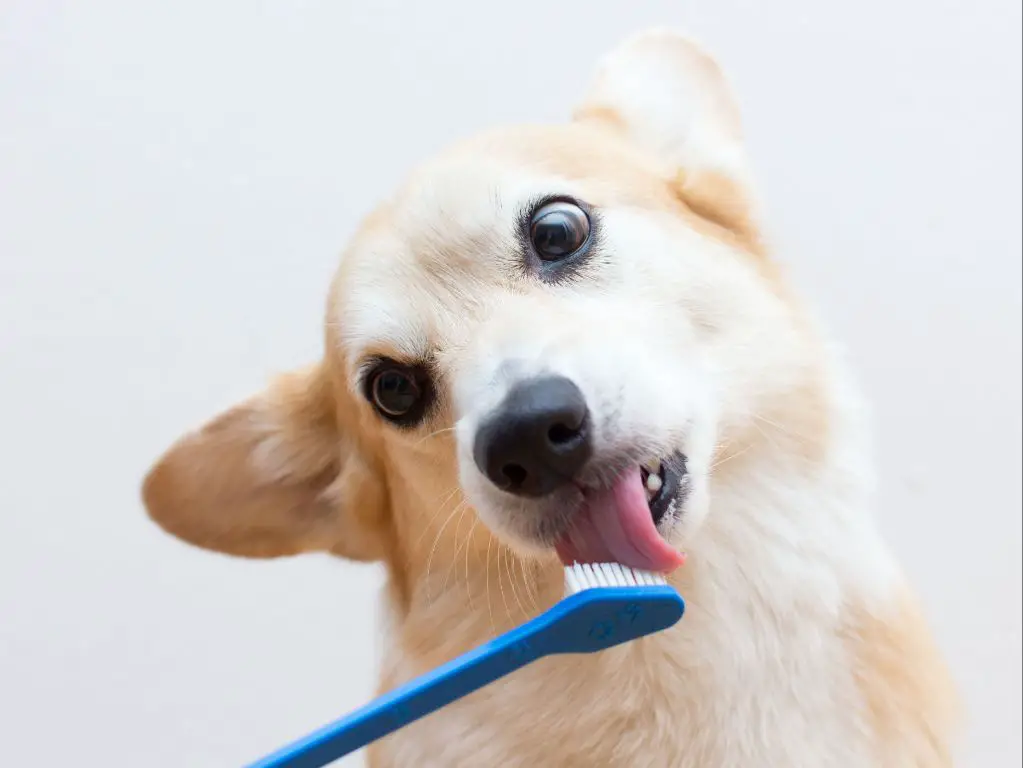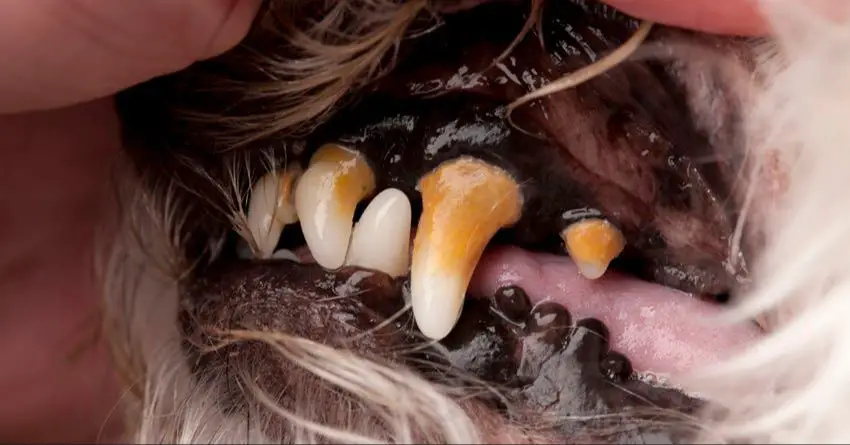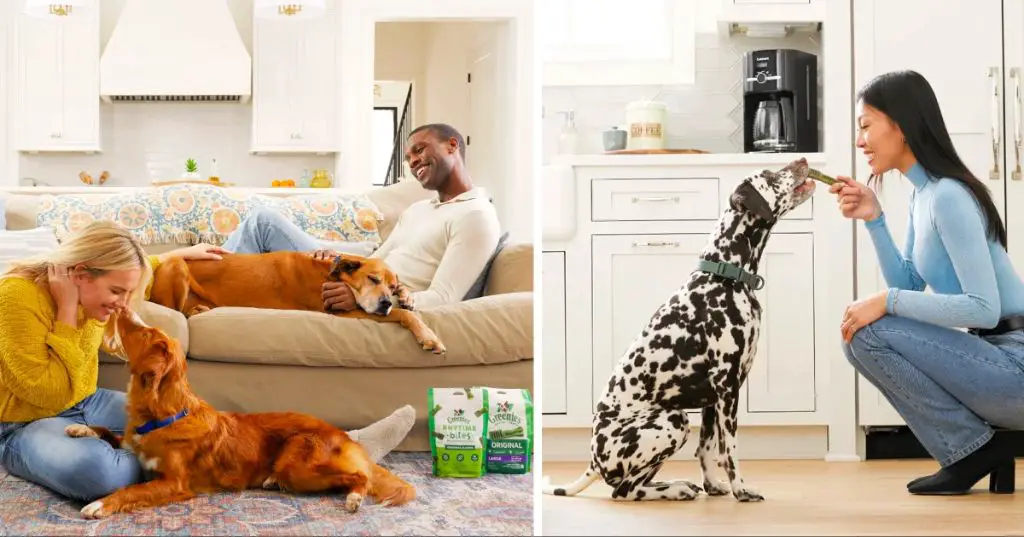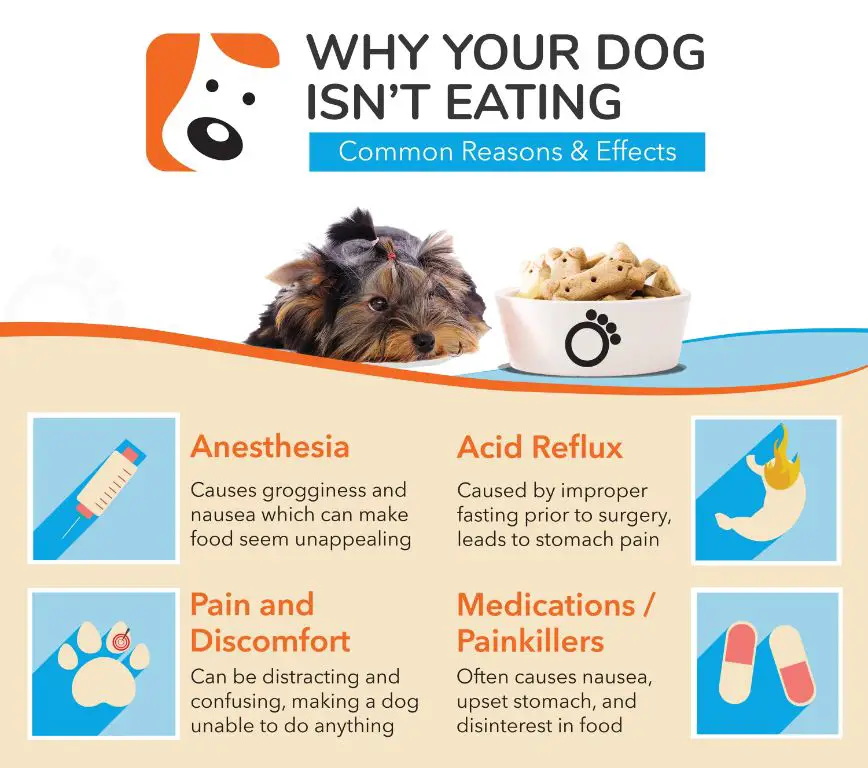Introduction
Dental health is extremely important for dogs, especially as they reach their senior years. Poor dental care can lead to a number of health issues for dogs including tooth decay, gum disease, bone loss, and even heart, liver and kidney disease.
As dogs age, their teeth and gums become more vulnerable to bacteria, plaque buildup, and tartar. This is because the enamel on their teeth wears down over time, making the teeth more porous and prone to decay. Older dogs are also more likely to develop periodontal disease, where inflammation and infection spreads from the gums into the tissue and bone surrounding and supporting the teeth. Left untreated, advanced periodontal disease can lead to painful tooth loss.
That’s why regular dental care, including brushing and professional cleanings, becomes even more critical for senior dogs. Keeping your aging dog’s teeth clean can help prevent decay and disease while also improving their quality of life. Maintaining good dental health will allow them to comfortably eat, avoiding dental pain that leads to appetite loss. It also reduces bacteria in the mouth that could potentially spread and cause damage to internal organs. By taking the time to care for your senior dog’s teeth, you can help add healthy years to their life.
Risks of Poor Dental Health
Like humans, dogs can develop severe dental problems if their teeth are not properly cleaned. One of the most common issues is periodontal disease, which occurs when plaque and tartar build up on the teeth. Over time, this can cause inflammation and infection in the gums and tooth sockets. Periodontal disease is not just a cosmetic issue – it can be incredibly painful for dogs and lead to tooth loss if left untreated.
In addition to gum disease and lost teeth, poor dental care can have other negative impacts on a dog’s health. Bacteria from dental infections can spread through the bloodstream and affect major organs like the heart, kidneys and liver. This increases the risk of potentially life-threatening conditions such as endocarditis and kidney disease. Dogs with severe periodontal disease have been shown to have a shorter lifespan than dogs with good dental health.
For older dogs especially, keeping their teeth clean is crucial for both their comfort and overall wellbeing. Even if they have lost some teeth already, remaining teeth that are not cared for properly can still cause significant pain and health problems. Regular dental care, including brushing and professional cleanings, can prevent many of these issues and help dogs live happier lives as they age.
When to Start Cleaning Your Dog’s Teeth
It’s important to start cleaning your dog’s teeth when they are young puppies. Puppies have 28 temporary “baby” teeth that start coming in around 3-4 weeks of age. These deciduous teeth are more prone to plaque buildup and should be cleaned. Starting dental hygiene as a puppy gets them used to having their teeth brushed and inspected.

The American Veterinary Medical Association recommends beginning tooth brushing when puppies are around 3-6 months old. At this age, their adult teeth start erupting and replacing puppy teeth. It’s ideal to start cleaning before plaque and tartar can build up on the permanent adult teeth.
In general, dogs should have their teeth cleaned professionally and have a veterinary dental exam no later than age 3. Starting dental care from puppyhood and maintaining a teeth cleaning routine can help prevent dental disease as your dog ages.
How to Clean an Older Dog’s Teeth
When cleaning an older dog’s teeth, it’s important to be gentle and move slowly so as not to cause them discomfort or stress. Here are some tips for effectively cleaning your senior dog’s teeth:
Use a soft-bristled toothbrush designed specifically for dogs. Hard bristles can hurt your dog’s gums. Look for a brush with a long handle so you can easily reach all their teeth.
Use toothpaste made for dogs, not humans. Human toothpaste contains ingredients that can upset a dog’s stomach. Dog toothpaste comes in flavors they enjoy like poultry and beef.
Apply just a small amount of toothpaste on the toothbrush and lift up your dog’s lips to expose their teeth. Gently brush in circular motions, focusing on the outer surfaces of the teeth and gums. Make sure to get the back teeth too.
Go slowly and keep sessions brief, about 30-60 seconds per side of the mouth. It may take a few tries for your dog to get used to having their teeth brushed, so have patience.
Give your dog lots of praise and treats during and after brushing so they see it as a positive experience, not a struggle. This will make them more cooperative in the future.
Aim to brush your older dog’s teeth 2-3 times per week if possible. Their dental health is more fragile and needs more frequent care.
Signs Your Dog Needs a Veterinary Dental Cleaning
As your dog ages, it becomes even more important to stay on top of their dental health. You may notice some concerning signs that indicate it’s time for your older dog to have a professional veterinary dental cleaning:
Brown buildup on teeth – Tartar, plaque and other debris can accumulate more quickly in senior dogs, leading to discoloration of the teeth. Stains and calculus should be professionally removed.

Bad breath – Foul odor from your dog’s mouth is not normal and usually signals infection or decay under the gums. This requires veterinary attention.
Red or inflamed gums – Swollen, irritated gums indicate infection. Gum disease is painful and can lead to tooth loss if left untreated.
Loose or missing teeth – Advanced dental disease may cause teeth to become loose or fall out. Your vet can assess the damage and remaining teeth.
Don’t delay if you notice any of these worrying signs – make that dental appointment for your senior dog. A thorough cleaning and examination under anesthesia is needed to get your dog’s mouth healthy and comfortable again.
Risks of Putting Off Dental Cleanings
There are several risks associated with delaying dental cleanings in older dogs. Some of the main risks include:
- Infection – tartar buildup harbors bacteria and if not addressed can lead to painful infections in the teeth and gums.
- Tooth loss – untreated dental disease and infection can eventually cause teeth to loosen and fall out.
- Pain – infection and inflamed gums can be quite painful and lead to decreased appetite.
- Bacteria spreading – oral bacteria from gum disease can enter the bloodstream and affect other organs like the heart, liver and kidneys.
Routine dental cleanings and care are crucial for older dogs to prevent these issues from developing. An annual or biannual veterinary dental cleaning and exam can catch problems early before they turn into something more serious. Be proactive about your senior dog’s oral health for their comfort and wellbeing.
Other Tips for Your Dog’s Dental Health
In addition to regular tooth brushing and professional cleanings, there are other things you can do to support your older dog’s dental health:
Dental Treats and Food: Look for dog food and treats made specifically for dental health. These are formulated to mechanically scrape plaque and tartar off teeth as your dog chews. They may contain ingredients like antibacterial enzymes to reduce bacteria in the mouth. Check with your vet for recommended dental diet brands based on your dog’s needs.

Regular Vet Checkups: Your vet can examine your dog’s teeth during annual wellness exams and let you know if any dental issues are developing. Preventive care from an early age helps avoid more severe dental disease later on.
Address Other Health Issues: Problems like kidney disease, diabetes, and cancer can contribute to dental issues in dogs. Treating any underlying illness and keeping your dog’s whole body healthy helps promote good oral health as well.
When to Avoid Cleaning Your Dog’s Teeth
In some situations, cleaning an older dog’s teeth can be inadvisable and even dangerous. This includes cases of severe periodontal disease and other major health issues.
If your dog has advanced periodontal disease, the teeth and gums may be extremely fragile and cleaning could lead to tooth loss or mouth injury. Severe gum recession also makes thorough cleaning difficult. The risks often outweigh the benefits in these cases.
Other health problems like heart disease, kidney failure, cancer, or immune disorders may make dental cleanings unsafe for older dogs. The anesthesia required could be dangerous with these conditions. Your vet can help determine if your dog should avoid dental cleanings due to health risks.
Rather than home cleanings, dogs with severe dental disease or health issues may need specialized veterinary cleanings. Or in some cases, tooth extraction or mouth rinses may be a safer option than a full cleaning.
Consult your veterinarian if your senior dog has advanced dental disease, complex medical issues, or you are unsure if cleaning is advisable. They can recommend the best oral care plan for your dog’s unique needs.
Signs of Trouble After a Cleaning
While dental cleanings are generally safe procedures for dogs, especially when performed by a veterinarian, some potential complications can arise. It’s important to monitor your dog after their cleaning to watch for any signs of trouble. Here are some key things to look out for:
Bleeding Gums
A small amount of blood when brushing teeth is normal, but excessive bleeding or bleeding that doesn’t stop can indicate issues like gum disease or clotting problems. Contact your vet if you notice significant gum bleeding after a dental cleaning.
Loss of Appetite

It’s common for dogs to have a decreased appetite for a day or two after anesthesia and a dental procedure. But if your dog refuses food or seems unable to eat comfortably for more than 2-3 days, let your vet know.
Swelling
Some mild gum swelling and inflammation is expected after a cleaning. But major facial swelling, swollen lymph nodes, or swelling that gets worse over time could signal an infection or abscess needing veterinary attention.
Behavior Changes
Significant lethargy, restlessness, whining, or other behavioral changes after a dental cleaning may indicate your dog is in pain or discomfort. Alert your vet to any concerning personality shifts that persist or worsen.
Conclusion
Proper dental care is extremely important for your senior dog’s health and wellbeing. Poor dental health can lead to gum disease, infections, tooth loss, and other issues that could negatively impact your dog’s quality of life. By starting a dental care routine, avoiding certain foods and treats, scheduling professional cleanings, and staying alert for signs of trouble, you can keep your older dog’s teeth and gums healthy and comfortable for many years.
As we have covered, it is safe to clean even an older dog’s teeth at home, as long as you use a soft toothbrush and toothpaste made for dogs. Work slowly and gently, especially if your dog is not used to having his teeth brushed. Make it a positive experience with praise and treats. But leave any advanced dental work like extractions to your veterinarian.
While home care is great for maintenance, dogs need professional dental cleanings periodically to fully remove tartar and plaque that can cause problems. 14 years old is not too late to start dental care for your dog. In fact, the earlier you start, the better. But even if you are just beginning now, you can improve your senior dog’s oral health and prevent more issues down the road.
With some patience and the right supplies and techniques, you can clean your older dog’s teeth safely and improve his health. Proper dental care will ensure your senior dog stays happy and comfortable for all his remaining years.